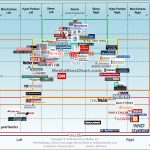Collective Memory
Some years before Vannevar Bush wrote about the Memex, the solitary Jorge Luis Borges penned a singular short story: Funes el Memorioso. There is a good translation by Andrew Hurley, with the somewhat awkward title of Funes, His Memory. At first it may seem strange to pair these two men in a sentence. Borges was not very much interested in technology, science and policy, as was Bush. His interests where in riddles, myths, language, infinite libraries and mirrors and copulation. But both Bush and Borges where concerned with the possibility of infinite memory, classification and information retrieval.
Funes is a young lad in a town somewhere in rural Argentina, that is in possession of a prodigious memory. He can recall every detail in the world, just by willing to thinking about it. He later begins to develop knowledge systems and classifications of his own. He is a kind of idiot-savant, that eerily reminds of El Niño Fidencio.
Both Bush and Borges conceived the expanded memory as personal “appliances”, in the case of Funes his abnormal brain and in Bush’s idea the Memex machine itself, which resembled the desk of a clerk with some complex machinery and microfilm inside.
Today we have a working version of this idea of an expanded memory. It is contained in the Web. But it is not something personal, it is a collective memory, that is created by large number of persons, and made available for everyone to use as an Information Commons.
We have to kinds of competing collective memory systems.
The first is the shallow web. It is formed by millions of websites with easy to access information, created by individuals all over the world. Google Search is the most common retrieval tool of information. It uses the links within the websites to decide about the relevance of each website, in fact extracting by this method a system of collective cataloging and ranking of information.
The second are meta-web systems like Wikipedia. Wikipedia tries to obviate the need to search the shallow web for information, instead offering multi-language articles that are crafted by a collective of editors worldwide. The idea of an Encyclopedia expanded to every aspecto fo human knowledge and endeavour.
The most evident problems of a collective memory are its accuracy and completeness. But in the end, information, like any other human activity, is a representation of the world. The representations reflect our ideas about ourselves.





